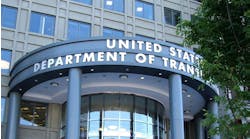Showing that government still can work smoothly and without rancor, President Barack Obama without fanfare on Tuesday signed legislation requiring that any federal standards concerning sleep disorders, especially sleep apnea, that apply to commercial vehicle operators would be handled through a rulemaking proceeding and not solely by regulatory guidance. The three-sentence legislation passed the House of Representatives by a vote of 405 to 0 and the Senate by unanimous consent.
Trucking industry stakeholders, including drivers, are pleased with the law because it will allow a full airing of the matter and offer opportunities for input in a prescribed, scientific and cost analysis-based manner. The Federal Motor Carrier Safety Administration had already made public its belief that the matter should be handled through rulemaking, but the law provides the industry added assurance that this will the case.
Stakeholders have long been concerned that without a rigorous rulemaking process, which precisely describes sleep apnea, many drivers might be unfairly cast as having the disease or be sent to doctors for unnecessary testing. For example, sleep apnea experts say that overweight drivers are more likely to suffer from sleep apnea than those who are thinner. However, being overweight does not mean that a driver automatically has the disorder as no threshold weight has been established. Indeed, the disorder comes in two varieties: obstructive sleep apnea being the more common type in which the throat muscles relax causing stops in breathing, and central sleep apnea which is a dysfunction of the brain sending signals that control breathing. Anyone can have the less common central version without any specific physical traits.
“We were very pleased with the bipartisan approach to this bill - in a very partisan atmosphere - and are delighted the president quickly signed it into law. It puts the Dept. of Transportation on the proper path, and ATA is optimistic that any rulemaking on this issue will be collaborative and informed,” said Bill Graves, American Trucking Assns. president and CEO.
In a public statement after Congress passed the bill, Owner-Operator Independent Drivers Assn. (OOIDA)executive vice president Todd Spencer said: “We estimate that the potential cost to trucking from an overly broad policy will reach at least $1 billion, with much of the cost likely to be borne by safe and experienced small business truckers. Without this legislation, FMCSA would be free to act on setting sleep apnea policy without considering these costs.”



